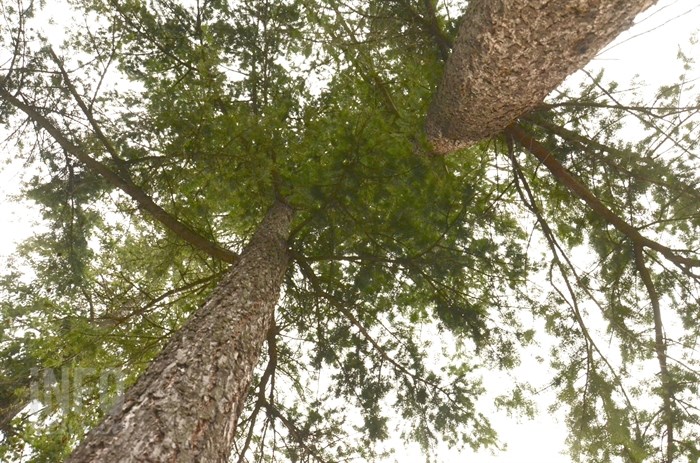
File photo.
(BEN BULMER / iNFOnews.ca)
May 13, 2021 - 9:00 PM
B.C. is falling short on its commitment to protect fish and wildlife habitat, according to a report released by the province’s auditor general this week.
The audit of the Ministry of Forests, Lands, Natural Resource Operations and Rural Development’s Conservation Lands Program identified several deficiencies, including: a lack of strategic direction ensuring government collaboration with Indigenous communities; a failure to sufficiently monitor and enforce rules on conserved lands; and a need to update management plans for species and habitat.
“Overall, we concluded that the ministry has not effectively managed the program,” Michael Pickup, auditor general, said in a statement.
Pickup noted the program — which was developed over half a century ago to provide a framework for the province to work with non-profit organizations, federal agencies and First Nations — has not revisited its goals or strategic planning for over 30 years. He also found the program lacks clarity of purpose, leaving government staff working on local or regional conservation programs without clear directives.
The report noted that even on conserved lands, the province isn’t doing enough to regulate public use, stating that “hundreds of unauthorized activities had occurred on conservation lands” between 2009 and 2020. Infractions ranged from motor vehicle use in prohibited areas to illegal harvesting activities.
The auditor general outlined a series of recommendations, including cementing a strategic plan for the program and addressing the need to be more transparent with the public. The Ministry of Forests acknowledged its shortcomings and said in a statement it is already working on a number of initiatives to address the audit’s findings.
“Ministry staff are currently working on a strategic plan for the Conservation Lands Program that will detail our actions to fully address the auditor general’s 11 recommendations,” a ministry spokesperson wrote in an email. “The new strategic plan will include input from the existing Conservation Lands partners, the minister’s Wildlife Advisory Council and the First Nations-B.C. Wildlife and Habitat Conservation Forum.”
As for when the public can expect to see the ministry implement the recommended changes, Pickup said at a press conference that decision is at the discretion of the province.
“Most of the responses to these recommendations indicate what they are going to do but they don’t actually indicate a specific timeline to have things done,” he said.
B.C. conservation management ‘outdated’ as species suffer declines
The report comes as steelhead and salmon populations in watersheds across the province struggle to survive, caribou herds are extirpated and numerous species suffer from habitat fragmentation and the impacts of climate change. There are thousands of species at risk in B.C. and, despite this, the current government reneged on its promise to enact species-at-risk legislation.
One of the Conservation Lands Program’s key tools to address the needs of at-risk species and important habitats is the designation of wildlife management areas, but the audit flagged a number of problems with B.C.’s management of those areas, noting around 70 per cent of the plans have not been approved and the average age of the plans is almost 20 years.
The audit noted current plans need to reflect current risks, which include the ever-evolving risks associated with climate change.
The report also pointed out that the province did not maintain an accurate inventory of its conserved lands, including non-administered conservation lands, which are areas designated for conservation purposes under the Land Act.
“The ministry needs an accurate inventory of conservation lands to monitor and report on progress and to make informed program decisions,” the report said.
B.C. working to align conservation with Indigenous values
The ministry said one of the ways it is addressing the auditor general’s recommendations, while working to meet provincial conservation commitments, predates the report. The Together for Wildlife Strategy, announced last summer, is the province’s plan for conserving B.C.’s biodiversity. The strategy outlines five goals and 24 actions to achieve those goals, which involve working closely with First Nations.
But according to the audit, the ministry “has not supported staff to collaborate with Indigenous Peoples when securing and managing conservation lands.” It added that while the ministry is working to provide training and guidance to its staff, there is a lack of specific direction to collaborate and engage with First Nations.
In an interview conducted prior to the audit’s release, George Heyman, Minister of Environment and Climate Change Strategy, said the province is working to align its conservation strategy with Indigenous Rights and community interests.
“We’re working hard to find a way forward that respects First Nations culture and values, that acknowledges and respects the importance of maintaining biodiversity and protecting species at risk, but doing it by developing an approach that doesn’t provide only one path.”
— This story was originally published by The Narwhal.
News from © iNFOnews, 2021